A viral claim alleging Spain boss Luis de la Fuente “destroyed” Pedri, Gavi, Lamine Yamal and Dani Olmo has ignited a fierce debate about player welfare and international load management. Barcelona supporters argue Spain’s rotation policy is reckless with already fragile profiles, while others counter that injuries stem from cumulative club-and-country workload and individual susceptibility. The flashpoint arrives amid a congested calendar, with young talent like Lamine scrutinized after playing through discomfort earlier this year. The episode reopens a familiar divide: national-team demands versus club priorities, with Barça urging stricter medical coordination and minute caps.
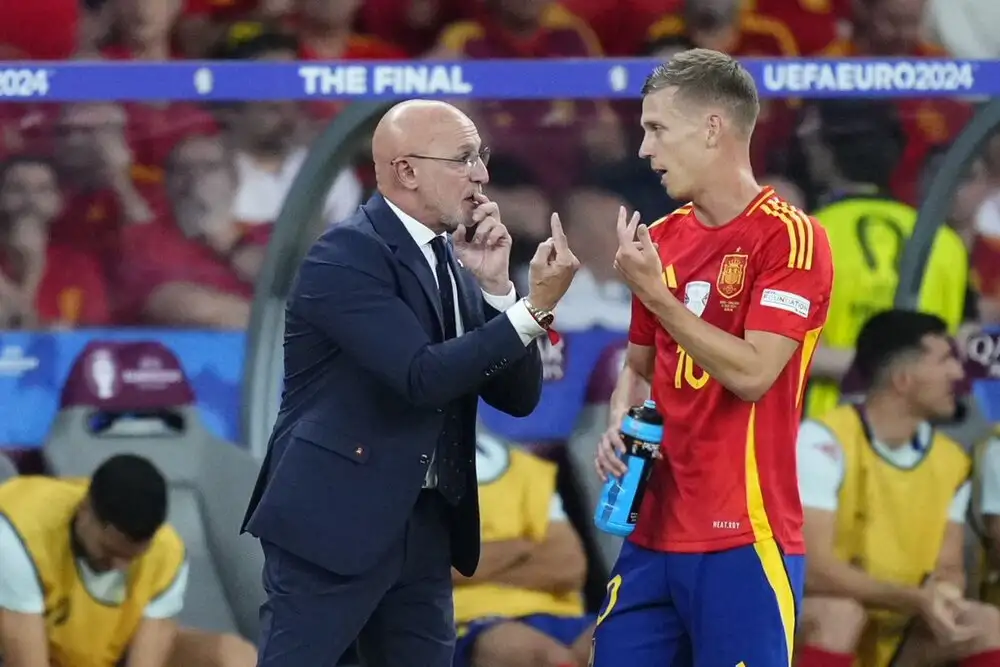
The controversy erupted after a widely shared quote from journalist Víctor Lozano alleging mismanagement of key Spain internationals connected to FC Barcelona. The debate unfolded around Spain’s recent international fixtures and Barcelona’s ongoing concerns about recurrent soft-tissue issues among core midfielders and emerging talents. Historical patterns of muscle injuries to Pedri and Dani Olmo, Gavi’s long-term recovery trajectory, and Lamine Yamal’s rapid rise under heavy minutes formed the backdrop. The discussion has been amplified by club-versus-country tensions typical in congested autumn and spring international windows, with stakeholders disputing accountability for player availability and risk thresholds.
.@victorlozano73: "Luis de la Fuente destroyed Pedri, Gavi, Lamine Yamal, and Dani Olmo. He's an irresponsible and dangerous person for FC Barcelona."
@BarcaUniversal
Impact Analysis
This flare-up underscores a structural fault line in elite football: the collision of a saturated calendar with fragile player profiles at a developmental or high-usage stage. For Barcelona, any perception that Spain’s staff is pushing limits with Pedri, Gavi and Lamine Yamal intensifies pressure on medical and performance departments to demand firmer protocols from the federation: red-flag thresholds, individualized load ceilings, and non-negotiable recovery windows. From Spain’s vantage point, Luis de la Fuente can argue selection is merit-based and medically cleared; however, optics worsen when minutes accumulate on players with recent histories of soft-tissue issues or post-injury ramp-ups.
Commercially, Barcelona and the RFEF face reputational costs: brands and fans recoil from storylines of preventable setbacks to generational talents. Competitive impact is immediate—Barcelona’s rotation depth is tested when any of these four are unavailable, while Spain risks entering competitive windows without its most creative profiles. The data case is nuanced: injury etiology is multi-factorial—prior load, travel, micro-cycles, biomechanics, and player-specific risk. Yet governance is simple: transparent data-sharing and pre-agreed minute caps reduce flashpoints. If distrust persists, expect louder calls for mandatory club vetoes, enhanced FIFA insurance mechanisms, and an external audit of return-to-play protocols.
Reaction
Fan sentiment polarizes along familiar lines. One camp, largely Barça-leaning, frames de la Fuente as cavalier—accusing him of fielding stars despite recent knocks and citing episodes where young players allegedly competed under pain management. This group demands accountability, stricter selection filters, and even hints at bias against Barcelona’s interests. Another camp dismisses the outrage, arguing that injuries predate Spain duty and that some stars—especially Olmo—carry historical susceptibility, making any single coach an easy scapegoat. They emphasize that Spain’s staff has, in aggregate, used these players sparingly relative to club workloads.
A pragmatic minority blames the ecosystem: relentless fixtures, limited recovery windows, and the pressure to play marquee names in every window. Spanish-speaking contributors also criticize club decision-makers and players for green-lighting call-ups while “managing discomfort,” calling it a shared failure. Among neutral observers, the refrain is consistent: the discourse is overheated, evidence incomplete, and solutions lie in harmonized medical governance rather than social-media tribunals. Overall, the temperature is high, the proof mixed, and the appetite for structural change—minute caps, clearer red flags—louder than ever.
Social reactions
people commenting that Olmo is injury prone etc etc ... that is not key here - the main aspect is Fuente is irresponsible when it comes to who to play and who not to and zero regard for players. Lamine played 2 matches a while back while been given painkillers.
Danish Ali (@DanishA80582418)
Why are they blaming this guy for all their injuries? I know this is not nice when your players get injured, but how do you expect him to prevent that when he played the least game with them?
MIKEV (@MikeV1Skillz)
This bald fraud was sent to be as reckless with barca players causing them unnecessary injuries shit should actually be investigated
Shadow (@Zigzagger1276)
Prediction
Short term, expect damage control. Spain’s staff will likely brief that selections are medically cleared, release internal load metrics to calm speculation, and pre-commit to conservative minute management in friendlies. Barcelona will push for codified thresholds—e.g., no starts within 10–12 days of a muscular setback and capped exposure in multi-game windows, especially for Lamine Yamal. Pedri’s workload will be managed with stricter substitution plans, while Gavi’s reintegration cadence remains methodical to avoid re-injury risk. For Dani Olmo, club-medical gatekeeping at RB Leipzig should tighten call-up conditions after any soft-tissue flag.
Medium term, a working group between Barça, RFEF and club medical teams is likely, with unified monitoring (GPS, CK, wellness, sleep) and real-time data-sharing to inform risk decisions. Communications will shift: pre-window medical bulletins and post-match load disclosures to reduce rumor-driven narratives. If another high-profile setback occurs, political pressure may escalate toward formalized international-minute caps for U23s and post-injury ramp restrictions. Long term, broader reforms—calendar rationalization, expanded squads for international windows, and standardized return-to-play protocols—will move from talking points to pilot programs, particularly around congested autumn and spring cycles.
Latest today
- Manchester United eye Manu Koné for summer 2026 - a made-to-measure fit for Amorim's midfi...
- Ruben Amorim aligns with Jason Wilcox as Man United sharpen January transfer plan
- Ruben Amorim on 3-4-3: identity first - what it means for Manchester United and player rol...
- Amorim flags United injury crisis - Bruno, Mainoo, De Ligt, Maguire and Mount doubtful
Conclusion
The allegation against Luis de la Fuente resonates because it taps into a genuine industry problem: fragile stars in an unforgiving calendar. Yet isolating blame ignores how injuries emerge from cumulative load, biomechanics, timing, and risk tolerance shared by clubs, players and national teams. The constructive path is data-led: pre-agreed thresholds, transparent minute maps, and joint sign-off for post-injury involvement. Barcelona’s priority is obvious—protect the availability of Pedri, Gavi, Lamine Yamal and, by extension, Dani Olmo—while Spain must preserve competitive edge without courting preventable risk.
Accountability should be systemic, not theatrical. If stakeholders implement synchronized monitoring, conservative ramps, and honest communications, controversies like this lose oxygen. Until then, each international window will continue to court turbulence, and every lineup decision involving a high-risk profile will be litigated in public. Pragmatism—not polarization—is the only route to keeping elite talent on the pitch.







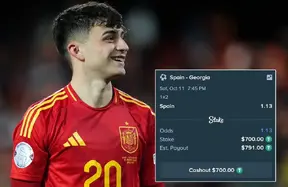
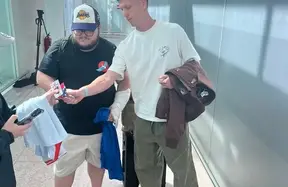
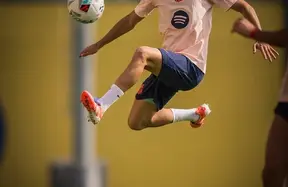
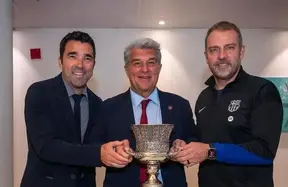
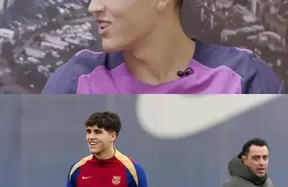
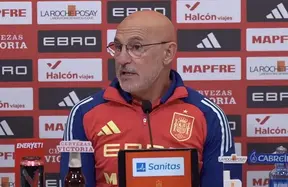
Danish Ali
people commenting that Olmo is injury prone etc etc ... that is not key here - the main aspect is Fuente is irresponsible when it comes to who to play and who not to and zero regard for players. Lamine played 2 matches a while back while been given painkillers.
MIKEV
Why are they blaming this guy for all their injuries? I know this is not nice when your players get injured, but how do you expect him to prevent that when he played the least game with them?
Shadow
This bald fraud was sent to be as reckless with barca players causing them unnecessary injuries shit should actually be investigated
Prince Owusu
Is it the first time Dani Olmo is getting injured. U people are fully aware that ur players are like biscuits.
Bishnu Bhandari
That’s why this Pig La fuente should be sacked
Sarangzai
It's not his fault, your players are made of GLASS 🥂
👑TERRY JAY BOY 🫅
For real?
Lunix
For real?
Duncan MacLeod
Es culpa de la directiva y del jugador. Qué diablos está haciendo con la selección si ya sabían que traía molestias. Y luego viendo cómo está De la Fuente. Que les puedo decir, muy poco responsables, parecen novatos.
K.K Be Bold🦅
sure
David
Not Dani Olmo lol
FCBDeeney💙❤️
Oh please!! He didn’t destroy Dani Olmo Dani olmo is an injury prone player
Thabiso Samsam
He's the ISIS leader trump was talking about
Dåmmy🥷
He didn't destroy Dani Olmo, bro is glass
🎖️💲B!GCHECKS💲🎖️
He’s a Vardrid agent our players must be protected from him
Bofrot1cedi PA
I really liked him until now
EA.Brown
That ain’t true
U.S. Global ETFs
Join us Thursday, October 17 at 12pm EST for a live fireside chat with Frank Holmes, CEO and chief investment officer, and legendary investor and former Marine fighter pilot Bob Moriarty, founder of 321gold[dot]com. They’ll discuss what’s next for gold, silver and junior